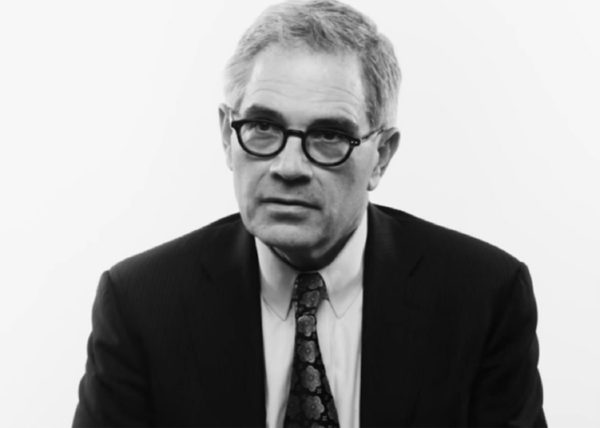
Philadelphia District Attorney Larry Krasner made good on his promise to clean house and reform the system when he eliminated 31 prosecutors from his staff. (Photo: Krasner Campaign)
Larry Krasner, the newly elected Philadelphia District Attorney, is cleaning house. The former civil rights and criminal defense attorney — elected under a platform of criminal justice reform and against mass incarceration, the death penalty and civil asset forfeiture — ran for his new job after 30 years of suing the police 75 times. And he started off the new year in his new office by showing no fewer than 31 staffers the door.
Ben Waxman, spokesperson for Krasner, said the move was part of a “broad reorganization” of the DA’s office structure, and a means to bring about a culture change to an institution the city’s top prosecutor criticized as a candidate for the office. “The coach gets to pick the team,” Krasner said, defending the shakeup, and insisting the staff were not fired, but rather were asked to submit resignations.
“The first fact is Krasner kept his campaign promise. He said he would clean house. He also suggested that what we was doing is not abnormal,” Christopher “Flood the Drummer” Norris told Atlanta Black Star. Norris, a Philadelphia journalist, activist and host on Black-owned WURD radio, endorsed Krasner in the 2017 election and said the staff changes are a good sign. “All DAs go into office with his own team, but there is something unique with the circumstances,” he added.
Those circumstances include a district attorney’s office that Krasner has described as “off the rails.” Norris said the biggest challenge facing Krasner is not matters such as prosecuting bad police officers, but rather bringing back the public trust in the office. Consider that his predecessor, Seth Williams, is currently serving a five-year sentence in a federal prison for bribery and corruption. He was convicted of accepting bribes and selling his office to “parasites” said the judge who sentenced him. Williams, the first Black district attorney in Philadelphia, who promised to reform criminal justice under the slogan “A New Day, A New DA,” had a hard fall from grace. Norris called Williams a “despicable man” who “deserves no lenience.”
“Larry Krasner is for all intents and purposes succeeding a criminal who did not have the interests of Black people at heart. Seth was a shame to the office,” Norris said. “It is a surreal experience, being there when Larry announced, being there when he won. I’ve seen Seth Williams fall from grace, dragged into court crying,” he added, noting that while Philadelphians should be excited, he doesn’t deny anyone’s right to be cynical. “Cynicism is warranted if you’ve lived through the trauma,” he offered, believing the street cred of Krasner’s new staff cannot be denied.
Among those who were ousted from the DA’s office included “supervisors with different visions, veteran high-salaried do-nothings or younger prosecutors associated with misconduct.” Some worked for the homicide division — which has sought capital punishment even after Pennsylvania Gov. Tom Wolf declared a moratorium on executions — and the civil asset forfeiture unit, which has faced community criticism. Also among those, the departures were the head of the DA’s Gun Violence Task Force, a state-financed entity that is also funded through civil asset forfeiture. “I do know of families who lost someone to homicide. They are concerned they have to build relationships with new ADAs,” Norris said. The firings impact as much as 10 percent of prosecutors.
One of the ousted assistant district attorneys was veteran prosecutor Mark Gilson, who was responsible for sending many people to prison for life and to death row. In 2014, Seth Williams’ office dropped charges against Tomayo McDuffy, a Black teen who was falsely accused of terrorizing a blind neighbor with mental health issues and her dog. Gilson painted McDuffy as a murderer, Norris said, and because of his innocence, McDuffy turned down a plea bargain that would have sent him to prison for 1½ to 3 years. Norris said McDuffy’s family went bankrupt in the process.
Bert Grote, legal director at the Abolitionist Law Center, told Atlanta Black Star the staff shakeup was expected. “Krasner has been consistent on the imperative to change the culture of the office and indicated throughout the campaign that the old guard would not be suited to an office prioritizing decarceration and restorative justice,” he said.
“This was an unequivocally positive step toward justice and one that was unanimously celebrated by my comrades and colleagues inside and outside the prison walls. The changes in leadership not only remove people who for decades have been the architects and agents of a racist system of mass incarceration in the city, it sends a heartening message that Krasner intends to carry out the platform of transformational change that a people’s movement put him in office to carry out,” Grote added.
One of the new staff members is Movita Johnson-Harrell, a community gun violence activist who was named interim supervisor of Victim Services. Mike Lee, a defense attorney and founder of Philadelphia Lawyers for Social Equity who operated criminal expungement clinics, is the interim head of the legislative unit. Arun Prabakharan, a former vice president at the Urban Affairs Coalition, is Krasner’s chief of staff. Prosecutor-turned defense lawyer Anthony Voci Jr. was appointed the interim chief of the homicide unit. Tapped for Interim Supervisor of the Law Department is Nancy Winkelman, an appellate attorney in private practice.
In their efforts to challenge the status quo, reform-minded prosecutors sometimes face backlash. For example, Orange-Osceola County State Attorney Aramis Ayala, a Black prosecutor in the mold of Krasner, opposes the death penalty. As a result, Florida Gov. Rick Scott reassigned nearly two dozen first-degree murder cases because of Ayala’s refusal to seek capital punishment. Baltimore State’s Attorney Marilyn Mosby indicted the police officers involved in the death of Freddie Gray but was unsuccessful, then the police sued her for defamation. Krasner was opposed by the Philadelphia Fraternal Order of Police — which endorsed Donald Trump for president — a possible obstacle to a district attorney who has sued the police many times and has represented Black Lives Mater and Occupy Philly. How does the movement that put Krasner in office respond?
“The old guard will fade out with a whimper, and the movement that put Krasner in office will fortify our position and continue organizing against this system of captivity, supporting Krasner when he makes the right moves, challenging him when necessary,” Grote said. “The FOP and other reactionaries will do what they do, but they were disorganized, incoherent and lacking in legitimacy during the election and are in a weaker position now. The movement has to deepen its organization on the community level and root itself in working-class communities, envision yet more audacious horizons, and in doing so create the social and political conditions that will vanquish the apartheid system and make it impossible to rise again.”
“Watch out, world. Watch out, FOP,” Norris warned. “The FOP does not want to see Larry Krasner be successful, and I wouldn’t put it past them to find ways to” stop him, he added. “It’s still so early. I’d say pay attention. Community members can be their own reporters. This is going to be the most transparent DA’s office.”

